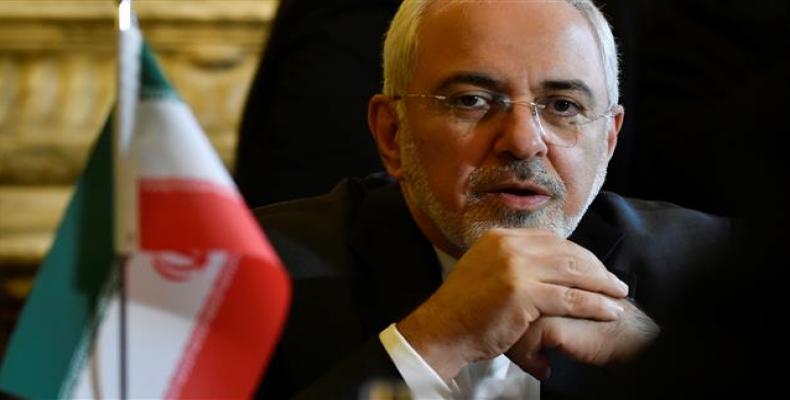Tehran, June 25 (RHC)-- Iran's Foreign Minister Mohammad Javad Zarif says the United States is the main impediment to the global drug war due to sanctions it has imposed on Iran, as the main country curbing the flow of traditional narcotics to the West.
In an address to a conference held in Tehran on Monday to mark the International Day against Drug Abuse and Illicit Trafficking, Zarif added the fact that Iran is a neighbor to the world's biggest producer of traditional narcotics has given regional and international prominence to measures it takes against illicit drug trafficking.
"The imposition of sanctions and other unilateral measures by the U.S. as well as its economic war and terrorism against the Iranian nation have hampered international cooperation especially in in fighting illicit drug trafficking," Iran's top diplomat said, adding: "The U.S. and some Western countries are directly responsible for untoward consequences of any disruption in the anti-drug war."
He emphasized that Iran alone accounts for nearly 80 percent of the world's total opium busts, putting the amount of opium seized by Iranian forces last year at more than 800 tons. Zarif said the killing of over 3,800 Iranian forces and the injury of more than 12,000 others are among the main costs Iran has suffered in the fight against illicit drugs, adding that no one in the world can compensate for such losses.
The top Iranian diplomat noted that the Islamic Republic spends more than 300 million dollars annually in the campaign against drug trafficking and supply. The Iranian foreign minister said drug trafficking has turned into a global woe, emphasizing that a united and integrated fight against the scourge would serve the interests of all countries.
If a group thinks that narcotics smuggling is limited to a "certain country or region," they will not be out of harm's way, he added. Saying that Iran is one of the main partners of the United Nations Office on Drugs and Crime, Zarif noted that despite the country's great efforts to comply with its international commitments, other partners, particularly the Europeans, have refrained from funding the UNODC's projects using various issues, including opposition to the punishment of smugglers, as pretext.
"It is necessary that the international community remain committed to the legitimate principle of shared responsibility and continue to provide technical assistance [in the war on illicit drugs]. This issue can herald a new chapter in the field of international cooperation in the [fight against] narcotics."


